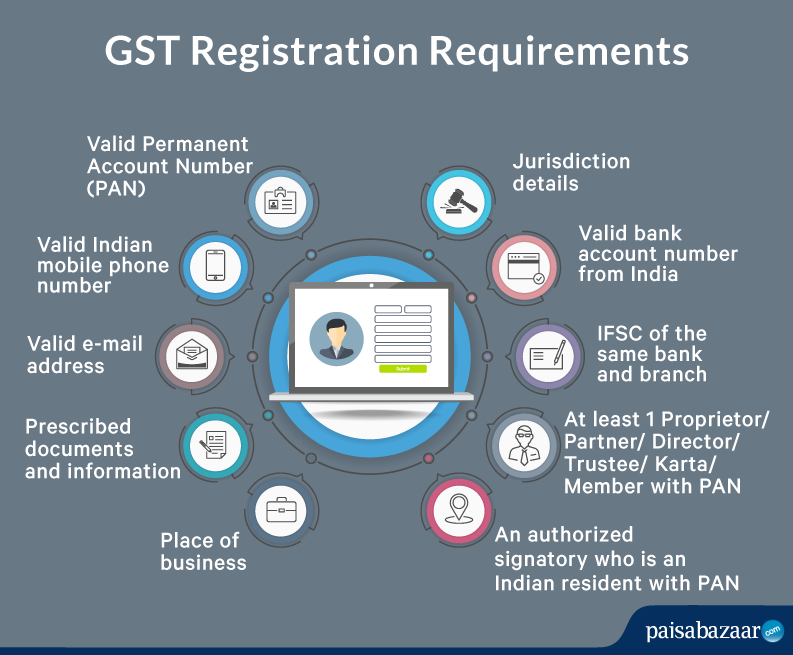Singapore GST Registration: What You Need to Know Prior To Applying
Singapore GST Registration: What You Need to Know Prior To Applying
Blog Article
The Ultimate Overview to Streamlining the GST Registration Process and Needs for Local Business Owners

Comprehending GST Fundamentals
To comprehend the basics of the Product and Services Tax Obligation (GST) system, small company proprietors should initially comprehend its underlying principles and ramifications. GST is a value-added tax obligation imposed on many goods and services for residential usage. It aims to streamline the taxes procedure by replacing multiple indirect tax obligations enforced by the state and central governments. Under the GST regimen, organizations are needed to register and collect tax in support of the government, guaranteeing transparency and conformity.
One of the essential concepts of GST is input tax obligation credit history, which permits organizations to claim credit report for tax obligations paid on their acquisitions. Recognizing these basic principles is essential for little organization owners to browse the complexities of the GST system and make certain conformity with the regulation.
Qualification Standards for Enrollment
Having developed a fundamental understanding of GST concepts, local business proprietors have to currently fulfill details qualification standards to continue with the enrollment process. In India, entities engaged in the supply of products or services with an annual accumulation turn over going beyond Rs. 40 lakhs (Rs. 10 lakhs for unique classification states) are needed to register for GST. Additionally, certain businesses such as those involved in inter-state supply of items, laid-back taxable persons, and those required to pay tax obligation under the reverse fee system need to register for GST irrespective of their turnover. Furthermore, businesses that were registered under the previous tax obligation regimen (VAT, solution tax obligation, etc) are likewise mandated to register under GST. Farming companies that only provide produce out of primary manufacturing are excluded from GST registration. It is crucial for entrepreneur to meticulously examine their eligibility based upon these requirements to ensure conformity with the legislation and avoid any kind of charges for non-compliance.
Documents Required for GST Registration

Simplified Registration Refine Steps
Adhering to the collection and verification of the requisite papers, the enrollment process for GST can be navigated via a series of simplified steps made to facilitate effective conformity for tiny business owners. Upon effective confirmation, an Application Referral Number (ARN) is issued, suggesting the conclusion of the GST enrollment procedure. By complying with these streamlined steps, little business owners can properly sign up for GST and make sure conformity with tax guidelines.
Tips for Ensuring Conformity
To maintain regulative adherence and functional honesty, attentive oversight and proactive steps are essential in making certain compliance with GST requirements for little service owners. Small company owners need to remain upgraded with GST helpful hints guidelines, submitting deadlines, and any type of modifications in tax obligation prices to prevent charges and keep an excellent standing with tax obligation authorities. Attending GST awareness workshops or training programs can enhance understanding and compliance with GST policies, eventually benefiting the service in the lengthy run.
Final Thought
In final thought, small company owners should understand the fundamentals of GST, meet the eligibility criteria, collect needed papers, and comply with the simplified registration process actions to make sure compliance. By streamlining the GST registration procedure and needs, small company owners can avoid fines and operate their businesses efficiently within the legal framework - Singapore GST Registration. It is important for local business proprietors to remain educated and compliant with GST regulations to keep an effective company procedure
Small company owners looking for GST registration must ensure they gather and send the needed documents to finish the registration procedure efficiently. The papers required for GST enrollment generally consist of proof of service registration or consolidation, PAN (Long-term Account Number) card of the business identity, entity and address evidence of the promoters/partners/directors, photographs, address proof of the area of business, bank account declarations or canceled cheques, and permission kinds. Attending GST understanding workshops or training programs can boost understanding and compliance with GST policies, inevitably profiting the company in the lengthy run.
By streamlining the GST enrollment process and demands, tiny business owners can prevent fines and operate their companies efficiently within the lawful structure. It is crucial for little service proprietors to remain informed and compliant with GST guidelines to keep an effective business operation.
Report this page